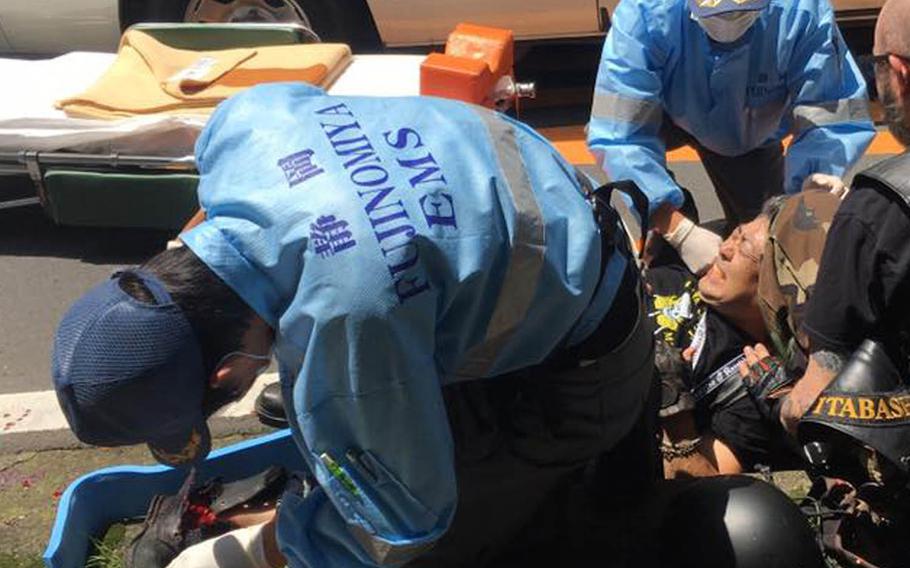
When Defense Commissary Agency contractor John Trent's Japanese neighbor crashed during a motorcycle ride on July 3, 2016, Trent did what any friend would do. Trent, a former soldier, realized the only way to save his friend's life was to stop the blood fast, and that's exactly what he did using a bungee cord as an improvised tourniquet. (Courtesy of John Trent)
YOKOTA AIR BASE, Japan — When Defense Commissary Agency contractor John Trent's Japanese friend crashed during a group motorcycle ride, Trent did what friends do.
The crash, which nearly severed Makoto Tanabe’s foot, happened on a bridge in Shizuoka prefecture during a July 3 ride by Japanese and American members of the Hard ‘n’ Fast motorcycle club.
The former soldier, who had been riding behind Tanabe, stopped and saw what he thought was a trail of transmission fluid leading up to the wreck. It turned out to be blood.
“When we slowed down and came to a stop, I saw his foot was just dangling,” Trent said.
Motorcycle club members elevated Tanabe’s injured foot, but it continued to bleed from a severed artery. Trent realized the only way he had to stop the blood fast to save Tanabe’s life, so he used a bungee cord as an improvised tourniquet.
“My experience with first aid came from basic training at Fort Leonard Wood, Mo., in 1975," Trent said.
Japanese language skills acquired over 3 1/2 decades in Japan helped him call emergency services, he added.
Tanabe, a 52-year-old sushi chef, was taken by helicopter to a nearby hospital. His foot has been reattached, but it’s unclear whether he’ll be able to use it.
“I don’t think of it as an American saving a Japanese citizen. I think of him as a friend,” said Trent, who visits Tanabe regularly in the hospital and hopes to get first aid incorporated into motorcycle safety courses at Camp Zama.
Col. Stephen Grabski, deputy commander of U.S. Army Japan, said the incident shows how bonds develop across cultures.
“This shows how strong the friendships are between individuals,” he said.